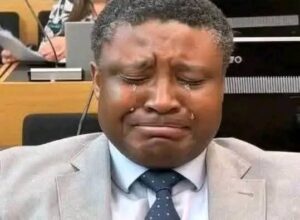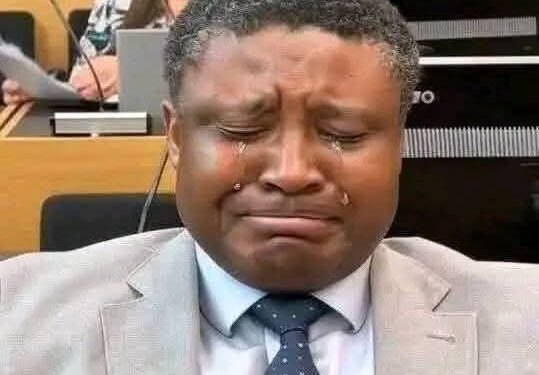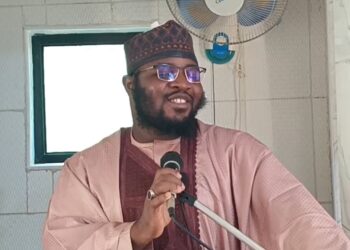
By Ibrahim Kegbegbe
On a Monday morning in Enugu, schoolgirl Chiamaka sat by her window, watching the street outside her home remain eerily quiet. Mondays had long been like this in Nigeria’s South-East—shops locked, buses grounded, and classrooms empty. For years, she and her classmates missed vital lessons and even crucial exams because of the infamous “sit-at-home” orders declared by Simon Ekpa, a Finland-based separatist activist.
Now, on another Monday—September 1, 2025—a different kind of silence fell across the region: the silence of relief. That day, a Finnish court sentenced Ekpa to six years in prison for terrorism-related offences, marking the beginning of the end of his long-distance grip on the South-East.
A Trial That Drew Global Attention
Ekpa, who styled himself “Prime Minister” of the Biafra Republic Government in Exile, was arrested in November 2024 following diplomatic pressure from Nigeria. His trial began in May 2025 at the Päijät-Häme District Court in Lahti, Finland.
Prosecutors presented evidence showing how Ekpa’s online broadcasts directed violence in the South-East, how his network raised funds, and how his orders were enforced by armed groups. The court also reviewed financial records that linked him to the purchase of weapons used by these groups.
On September 1, judges delivered their verdict: six years behind bars. For many Nigerians, the timing carried symbolism. Mondays, once the day Ekpa used to paralyse the South-East, had become the day he lost his freedom.
Stories of Disruption and Loss
For students like Chiamaka, the orders had devastating effects.
“I missed my WAEC Mathematics exam because of sit-at-home. They said buses would not run, and my parents were afraid of attacks. I cried all night,” she recalled.
For traders, Mondays became a day of counting losses. Ifeanyi Okeke, who runs a spare parts shop in Nnewi, said he lost half his weekly income every time he had to shut down.
READ ALSO:Ribadu Blasts El-Rufai: ‘Your Banditry Claims Insult Fallen Heroes
“In business, Monday is our most important day. Customers come to buy goods for the week. Ekpa destroyed that. Some people even packed up and left.”
Farmers also bore the brunt. Mama Ngozi, a cassava farmer from Imo State, said her produce often rotted in storage.
“We bring our cassava and palm oil to the market on Monday. But for years, we stayed home out of fear. I cannot count how much food I lost.”
Families, too, lived with constant fear. In Anambra, Chukwuemeka Eze, a father of two, remembered how a neighbour was killed for defying the order.
“They shot him on the way to his shop. Since then, even buying bread on Monday became a risk. Our children grew up thinking Monday is a day for hiding indoors.”
Official Reactions
The conviction drew praise from both federal and regional leaders.
President Bola Tinubu thanked Finland for upholding justice:
“I must thank you for your record on safeguarding human rights in our country with the trial of Simon Ekpa. Nigeria is indivisible.”
The Minister of Information, Mohammed Idris, called it “a major victory for the Nigerian people in the collective fight against terror.”
Nigeria’s National Security Adviser (NSA) also welcomed the judgment. Nuhu Ribadu said:
“We are delighted about his arrest and glad that the international community is partnering with Nigeria in our fight against terrorism.”
In the South-East, the apex Igbo socio-cultural group, Ohanaeze Ndigbo, described the sentencing as a “huge relief,” warning that Ekpa’s activities had cost the region over ₦22 trillion in lost investments.
But not everyone agreed. The Indigenous People of Biafra (IPOB), loyal to Nnamdi Kanu, distanced itself from him. Spokesperson Emma Powerful said:
“Simon Ekpa’s conviction is his burden and his alone. IPOB will never carry it.”
A Turning Point for Mondays
For years, Ekpa’s voice from Finland held millions hostage every Monday. Schools shut, markets froze, and fear became a weekly routine. His conviction on a Monday has been seen by many as poetic justice—a turning point.
As Tochukwu Emeka, a student, put it:
“Maybe now, Mondays can be normal again. Maybe we can go back to school without fear.”
READ ALSO:Nigeria’s TVC, Arise TV End Silent Rift Over Newspaper Reviews
The road to healing will be long, but for the first time in years, families, traders, farmers, and students across the South-East believe Mondays may once again belong to them—not to fear.
















